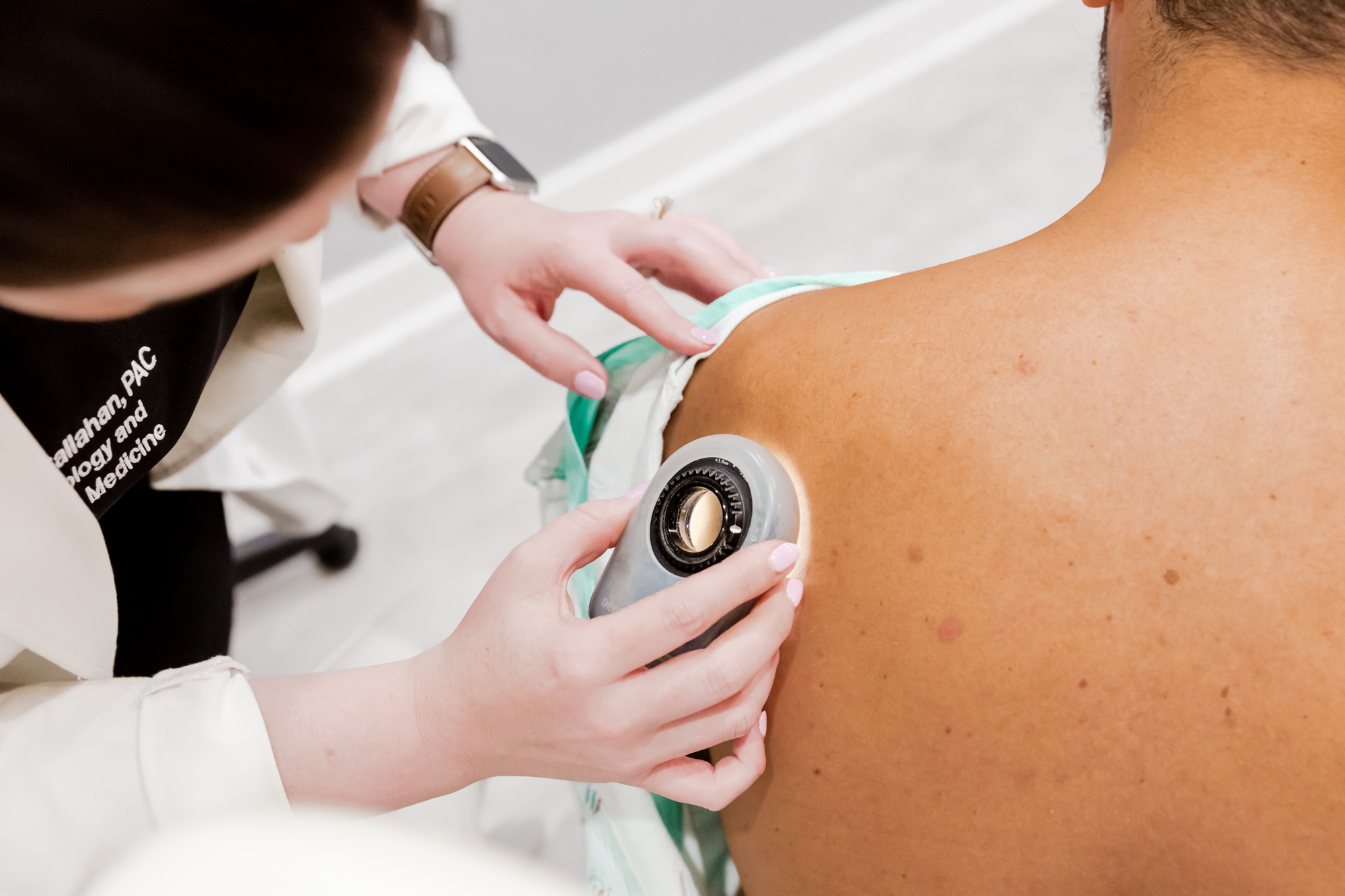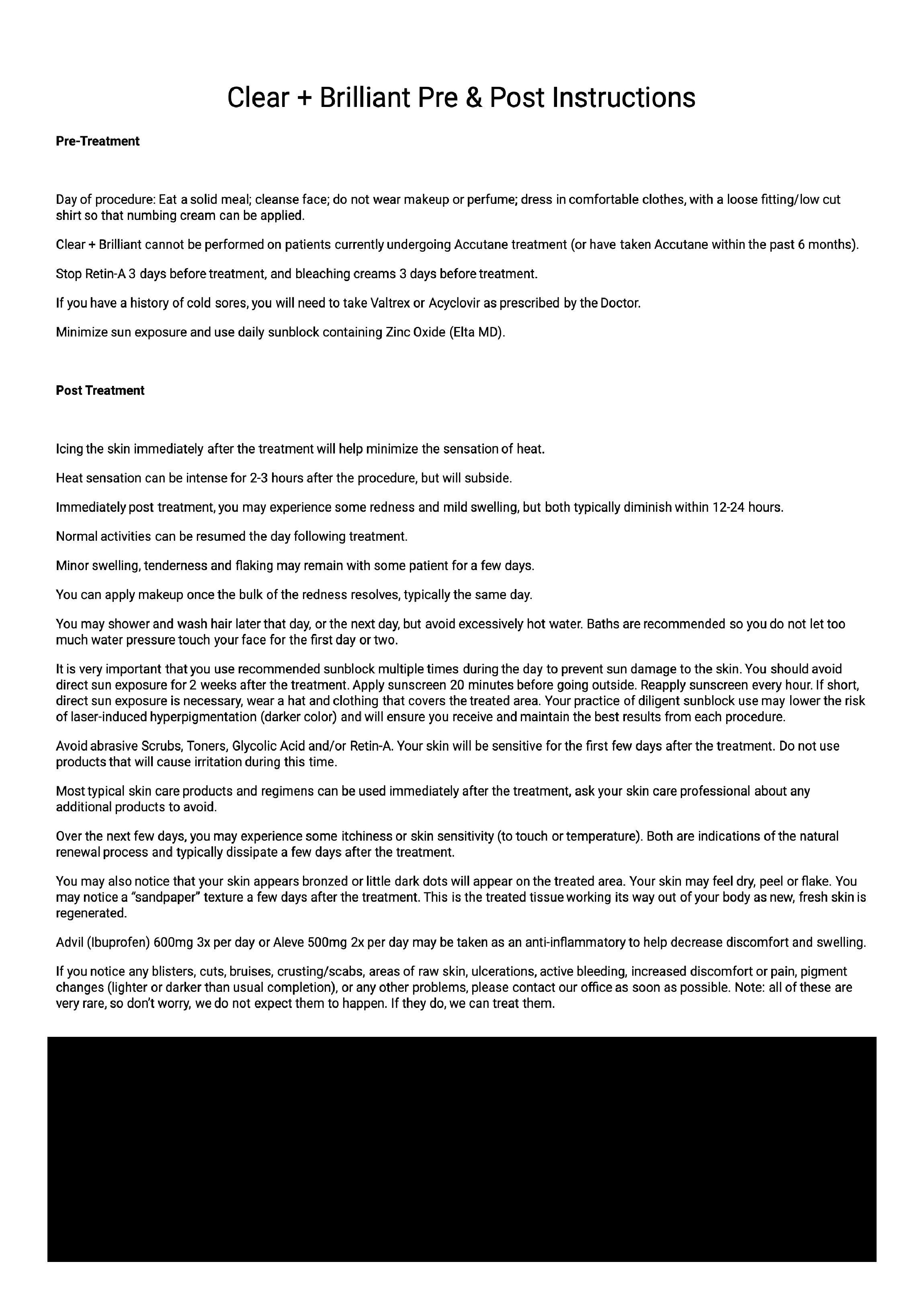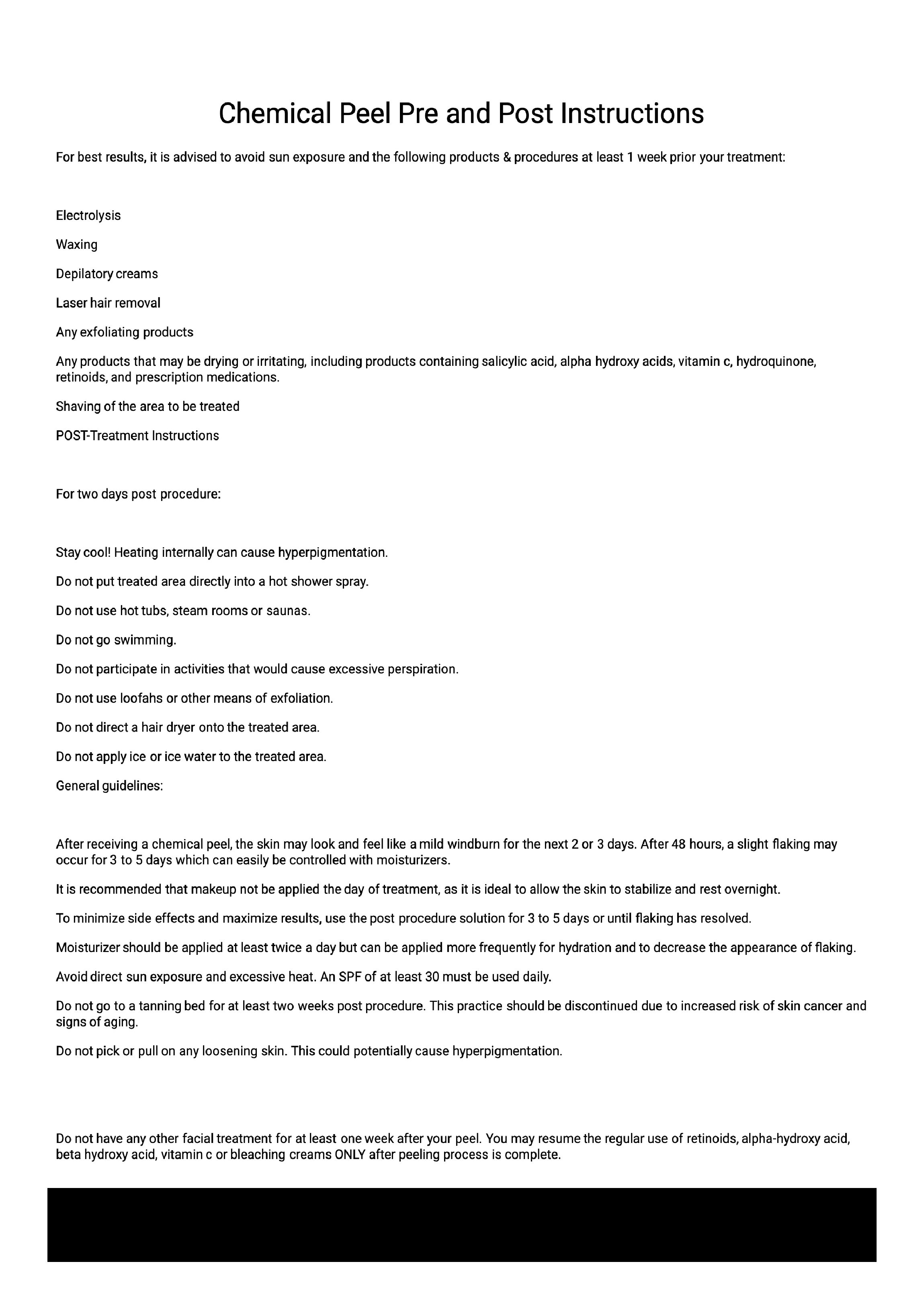Protect Your Skin, Protect Your Health
A full body skin exam is a vital step to detect skin cancer and other skin-related concerns early. Skin cancer is one of the most common types of cancer, but early diagnosis can lead to highly effective treatment. At Dermestetics in McLean, VA, we offer comprehensive full body skin exams to evaluate your skin health, identify potential issues, and ensure your peace of mind.

Expert Providers
At Dermestetics, our experienced dermatology team provides thorough and meticulous skin evaluations. We focus on detecting signs of skin cancer, precancerous lesions, and other skin abnormalities early to prevent complications. As part of our commitment to individual care, every patient is provided with the attention and guidance they need to maintain healthy skin.

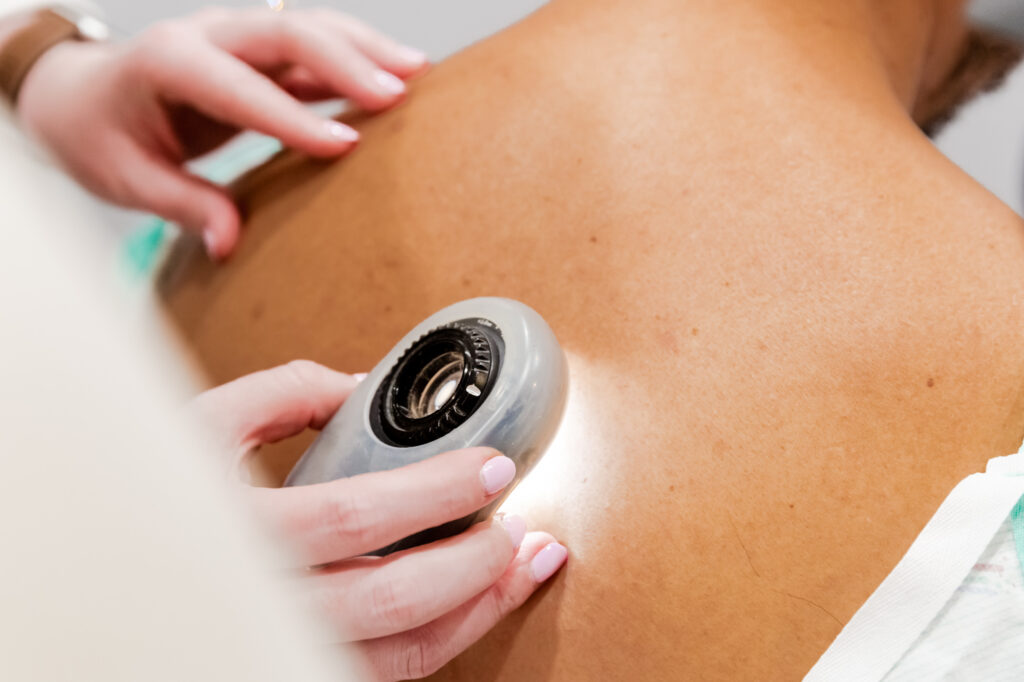
What’s great about our full body skin exams?
Learn More
Consultation Required?
Yes
Duration of Results
Varies based on findings and follow-up
Sessions Needed
Annual exams recommended
Downtime
None
What It Treats
Common Concerns Addressed During a Full Body Skin Exam:
Early detection of skin cancer
Atypical or irregular moles (dysplastic nevi)
Precancerous growths, such as actinic keratosis
Chronic sun damage
New or evolving spots, growths, or lesions
Skin discoloration or textural changes
Understanding the Importance of Early Detection
1. Melanoma
- The deadliest form of skin cancer usually presents itself as a new mole or a change to an existing mole.
- Early detection significantly improves survival rates.
2. Basal Cell Carcinoma
- A common skin cancer that usually appears as a pearly bump or a flat lesion.
- While slow-growing, it requires treatment to prevent deeper tissue damage.
3. Squamous Cell Carcinoma
- Often presents as a red, scaly patch or an open sore that doesn’t heal.
- Possible to spread to other areas if not treated immediately.
4. Actinic Keratosis
- A precancerous condition due to prolonged sun exposure.
- It may lead to squamous cell carcinoma if ignored.
Symptoms to Watch For
- Asymmetry: One half of a mole doesn’t match the other.
- Border irregularity: Edges that are ragged, blurred, or notched.
- Color changes: Variations in shade or multiple colors within a single lesion.
- Diameter: Lesions larger than 6 millimeters, about the size of a pencil eraser.
- Evolving: Changes in size, shape, or symptoms like itching or bleeding.
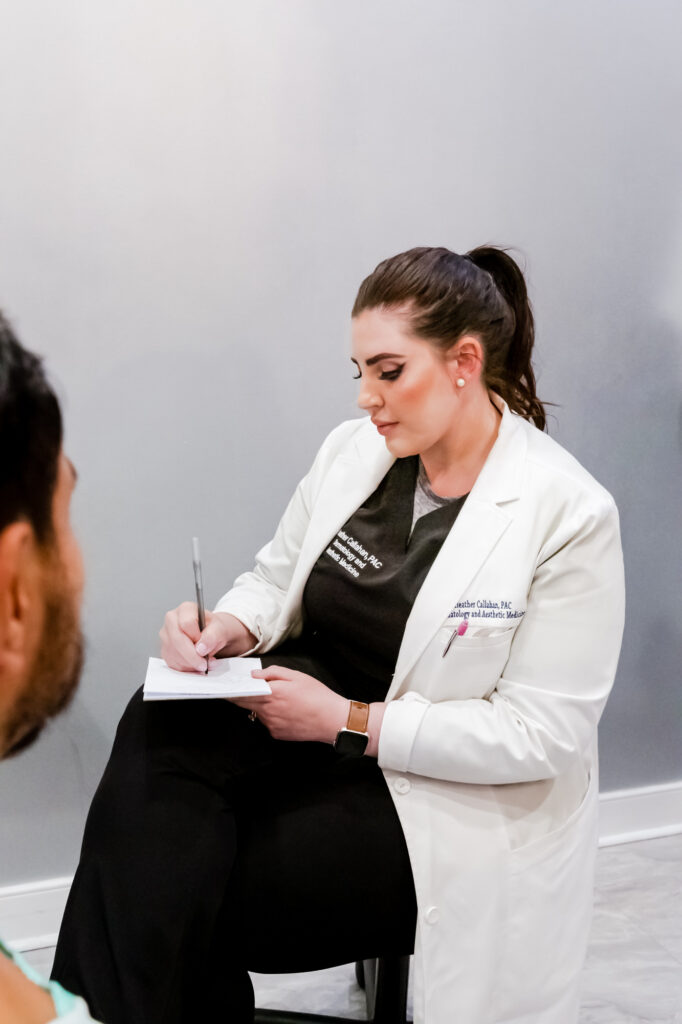
How it Works
How it Works
Our Comprehensive Approach to Full Body Skin Exams in McLean
At Dermestetics, we use a systematic and patient-centered approach to perform detailed skin evaluations. Our goal is to ensure that any abnormalities are identified and addressed promptly.
Step 1: Medical History Review
We begin by discussing your medical history, which includes your past diagnoses of skin conditions or family history of skin cancer. This step helps us identify your risk factors.
Step 2: Thorough Skin Examination
Our providers conduct a meticulous evaluation of your entire skin surface, including often-overlooked areas like the scalp, soles of the feet, and behind the ears. You will wear a medical gown for comfort and privacy.
Step 3: Use of Advanced Tools
We use dermatoscopes to closely examine any moles or lesions that appear suspicious. These magnifying devices allow for a more detailed assessment.
Step 4: Documentation and Monitoring
If necessary, we document any areas of concern with photographs to track changes over time. This step is essential for monitoring new or evolving lesions.
Step 5: Recommendations and Follow-Up
After the exam, we discuss our findings with you and provide recommendations for the next steps, including biopsies, treatments, or preventive measures as needed.
How is my treatment plan developed?
Your plan is tailored to your individual needs and risk factors. For patients with a history of skin cancer or atypical moles, more frequent monitoring and follow-ups may be recommended.
How long will I need treatment?
Most exams are completed within 20-30 minutes. If treatment is necessary, additional appointments will be scheduled based on the findings.
Are you a good candidate for a full body skin exam?
You should consider scheduling an exam if you:
- Have a personal or family history of skin cancer
- Notice new or changing moles, freckles, or spots
- Have a history of frequent use of tanning bed or prolonged sun exposure
- Have fair skin, light hair, or a tendency to burn easily
How do I monitor your progress?
We provide guidance on self-examinations and schedule annual follow-ups to ensure that any changes in your skin are detected and addressed promptly.
Prevention Tips for Skin Health
- Apply sunscreen with high SPF daily, even on cloudy days.
- Wear hats, sunglasses, or other clothing that protects you from the sun outdoors.
- Avoid tanning beds and prolonged sun exposure.
- Perform monthly self-skin checks using a mirror to identify changes.
- Drink plenty of water and follow a balanced diet to support skin health.
Get Started
Ready to prioritize your skin health?


